Jiuzhaigou Travel Guide
Jiuzhaigou Travel Guide
Jiuzhaigou is famous for its turquoise lakes, waterfalls, colorful forests, pristine snow, Tibetan customs, and blue glaciers. April to November is the peak tourist season in Jiuzhaigou. Around April, the valley is blanketed in red, purple, blue, and yellow flowers. From June to August, the high altitude provides a cool escape from the summer heat. Due to the abundant water supply, this is also the best time to admire the turquoise lakes and waterfalls. October and November are the peak seasons for Jiuzhaigou, when the forests are bathed in beautiful colors, reflected in the shimmering lakes. Visitors can also experience the rich Tibetan culture through Tibetan performances, traditional architecture, temples, and Tibetan-style parks.
Jiuzhaigou boasts some of the world’s most breathtaking and captivating scenery, and is a protected area considered sacred by the local Tibetan and Qiang peoples. It’s no wonder that its breathtaking beauty is shrouded in mythical legends. This is precisely why Jiuzhaigou attracts so many visitors. The park is open year-round, and a comprehensive range of facilities ensure the protection of the fragile natural environment.
Tourist Attraction
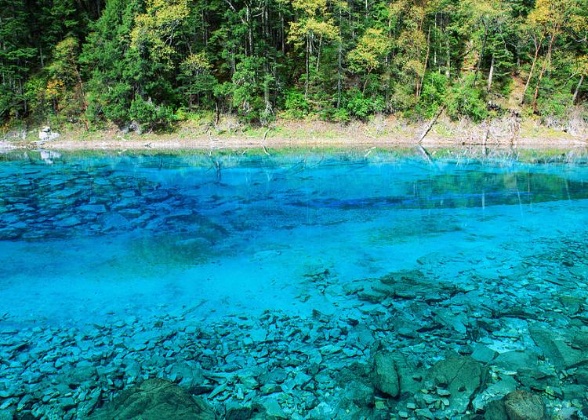
Jiuzhaigou National Park
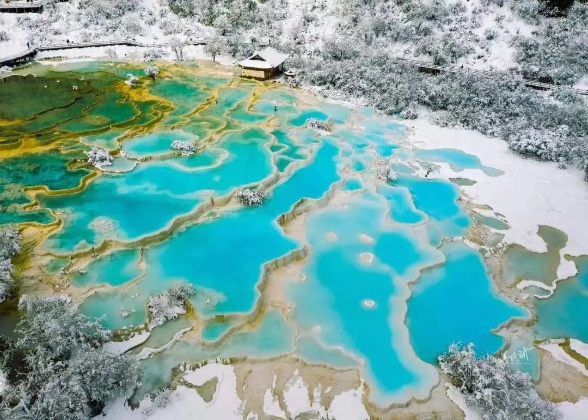
Huanglong National Scenic Area
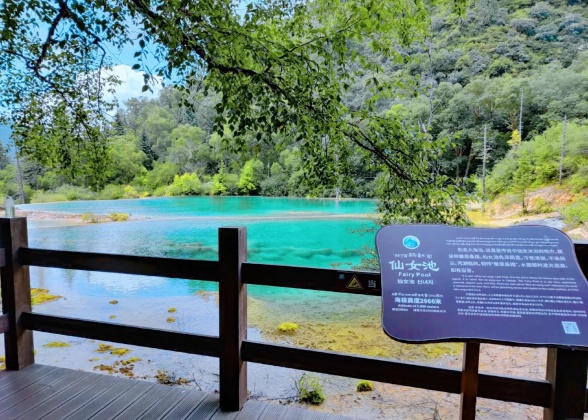
Fairy Pond Scenic Area
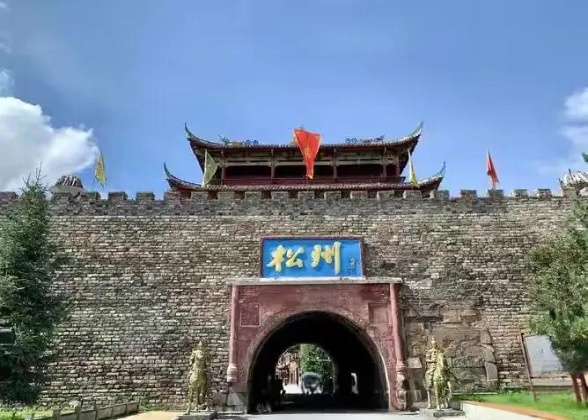
Songpan Ancient Town
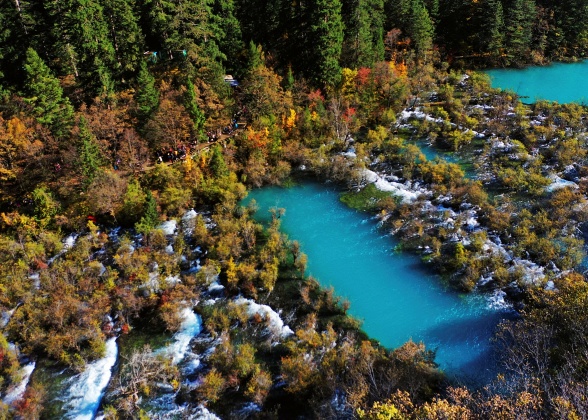
Munigou Valley
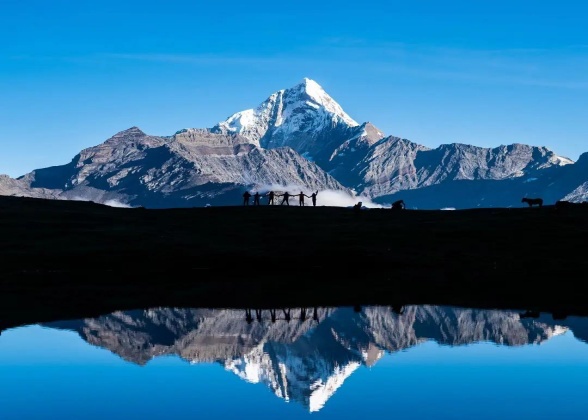
Siguniang Mountain

Travel Planning
A journey to Jiuzhaigou offers western China’s most captivating “symphony of wonderland and humanity”—immersing yourself in the soul of western Sichuan in just 6-7 days. A sightseeing bus journeys through the valleys, where lakes scatter like overturned sapphires amidst the forest. The waters of Wuhua Lake shimmer in a rainbow of colors as the sun shines. The waters of Nuorilang Waterfall roar into a lush green pool. The Mirror Lake at dawn “mirror sea” perfectly “mirrors” snow-capped mountains and vibrant forests, making it hard to tell whether it’s heaven or earth.
South of Jiuzhaigou, the calcified pools of Huanglong resemble a colorful carpet, while the Five-Colored Pool, in the sunlight, resembles a mosaic of tens of thousands of broken pieces of glass. Ascending along the wooden plank road, you’ll find pools of milky white, pale yellow, and indigo beneath your feet, surrounded by swirling clouds and mist, akin to stepping into the abode of the immortals. Halfway through, we turned into Songpan Ancient Town. The bluestone pavement was polished to a shine by horse hooves, and the battlements of the ancient city wall still bear the marks of history. In the evening, sip a cup of butter tea in a Tibetan house, watch the prayer wheels turn in the sunset, and listen to locals recount stories of the ancient Tea-Horse Road. The hustle and bustle of life embodies a millennium of history.
For a tranquil retreat, the Zaga Waterfall in Munigou will delight you—water cascades over the calcified rock, resembling a frozen Milky Way. Tucked away deep in the dense forest is the Fairy Pond, whose crystal-clear waters reflect the surrounding red birch trees. The wind rustles through the leaves, creating a scene as if fairies are dressing themselves.
To conclude your trip, visit Siguniang Mountain. Four snow-capped mountains stand side by side like maidens adorned with silver crowns. Yaks stroll leisurely across the meadows of Shuangqiaogou. The plank roads of Changpinggou lead deep into the snow-capped mountains. Looking up, you’ll see the captivating peaks, while below, you’ll find the gurgling streams. Here, the grandeur and gentleness of Western Sichuan blend perfectly.
Whether you’re looking to relax by the lakes of Jiuzhaigou or while away the hours in the quaint teahouses of Songpan Ancient Town, a well-planned trip to Western Sichuan is sure to make you fall in love with this land where “a paradise on earth intertwines with a hidden gem of humanity.” 365 China Travel Service is ready to tailor your itinerary, ensuring every step is in the heart of Western Sichuan!apply now
Transportation
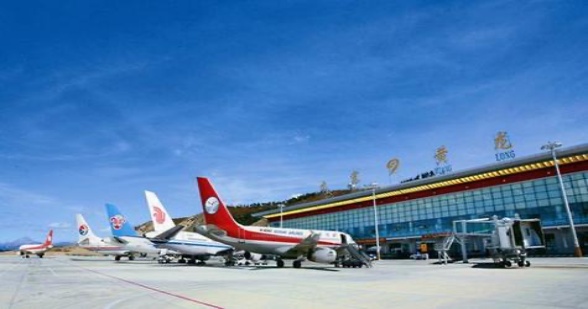
Jiuzhaigou’s remote location previously made it difficult for tourists to reach the area. However, with the opening of the high-speed rail line from Jiuzhaigou to Chengdu, this problem has been resolved.
In addition, Jiuhuang Airport now offers direct flights to and from Chengdu.
For transportation within the county, sightseeing buses are available within the Jiuzhaigou scenic area.
Meals
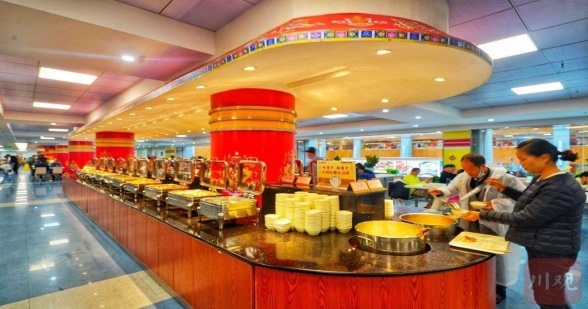
Because Jiuzhaigou has long been home to a large Tibetan population, authentic local cuisine boasts distinct Tibetan flavors, such as the famous butter tea and barley wine. However, the strong flavors of Tibetan cuisine may not please everyone.
The restaurants attached to star-rated hotels offer even more delicious food in a comfortable setting. Jiuzhai Paradise and the Sheraton Jiuzhaigou Resort are two five-star restaurants that serve a variety of high-quality Chinese and Western cuisine, especially authentic Tibetan specialties. However, neither restaurant is ideal for budget-conscious travelers. Don’t worry: several lower-end hotels around the valley also offer reasonably priced, delicious meals.
Nightlife
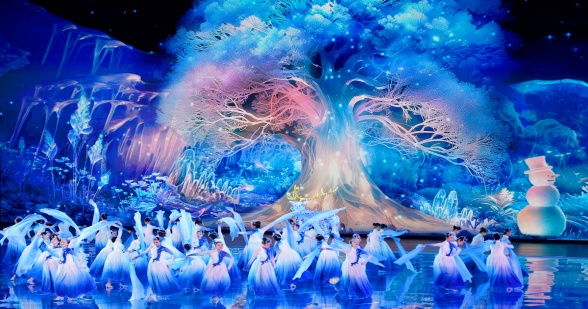
In the evening, the first choice is to watch the exotic song and dance performances of the local Tibetan and Qiang people. China’s ethnic minorities are renowned for their singing and dancing skills, expressing the diverse emotions of daily life through song and dance. Performers, dressed in colorful Tibetan and Qiang ethnic costumes, perform cheerful songs and vigorous dances. Audiences are often invited to join in the Tibetan Guozhuang dance, which is often performed during important festivals and events.
After a day of adventure, for a quiet evening, consider visiting Bianbian Street (near the entrance to Jiuzhaigou) to relax with a cup of unique Tibetan coffee or browse the eclectic shops. This street, along with the winding Baishui River, has become a unique destination. Bars are available here, where people can enjoy a drink, meet fellow travelers, and share experiences and stories.
History and Culture
Before its official name change nearly 800 years ago, Chongqing was known as Jiangzhou, Yuzhou and Gongzhou. Since the Qin Dynasty (221-207 B.C.), successive dynasties have set up administrative institutions here, giving the city its dazzling culture. Located on the banks of the Yangtze River, the “River of Gold”, Chongqing is a symbol of the Yangtze civilization and the birthplace of the Bayu culture.
Start planning your customized tour with one-on-one help from one of our travel consultants.
Why Choose 365 China Travel
★Customize your tour
Travel Advisor with roots in China
Immediate response, no waiting!
Direct Connections, Supreme Values
★Maximize your flexibility
- Your own private guide and journey
Explore at your own pace
- Unparalleled flexibility, not possible with group tours
★Ensuring Your Satisfaction
Top 20% of nationally ranked tour guides at your service
24/7 emergency support
Cultural In-depth Experience Service
